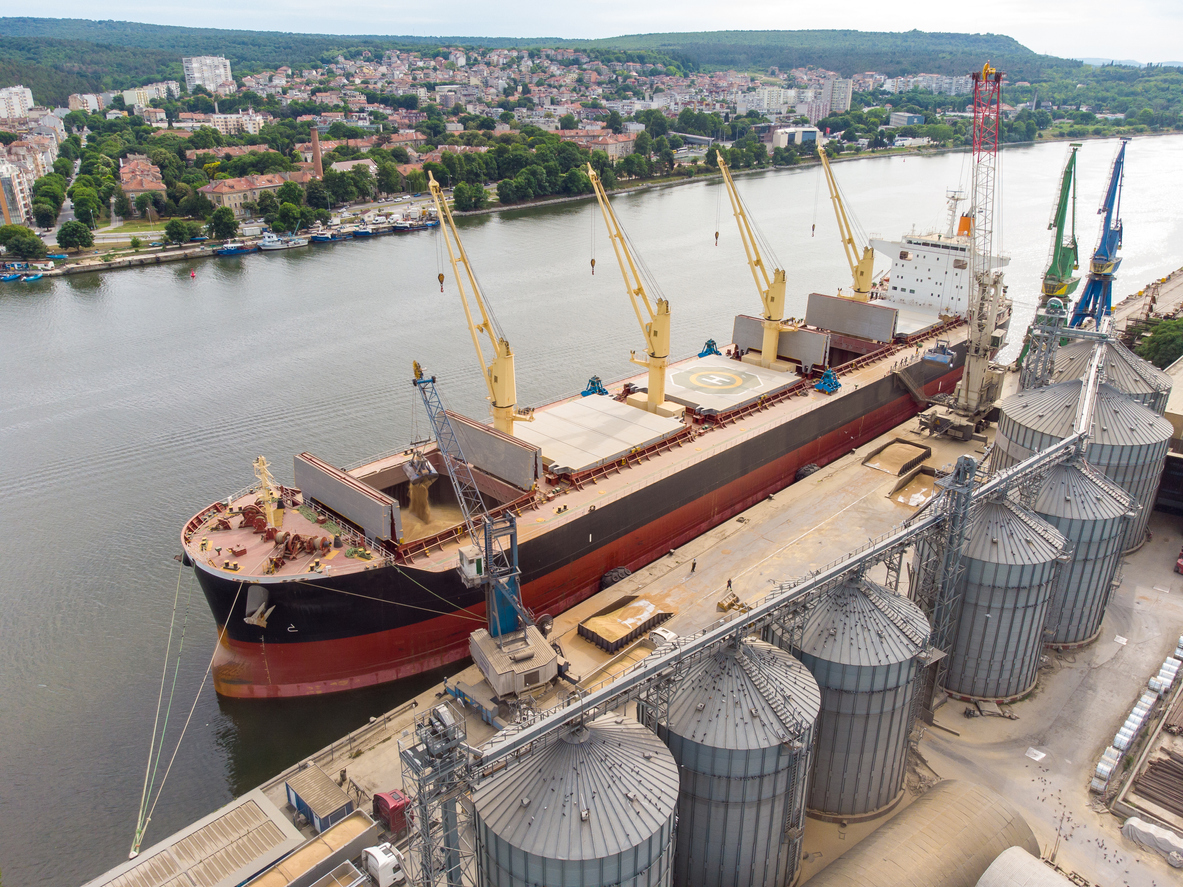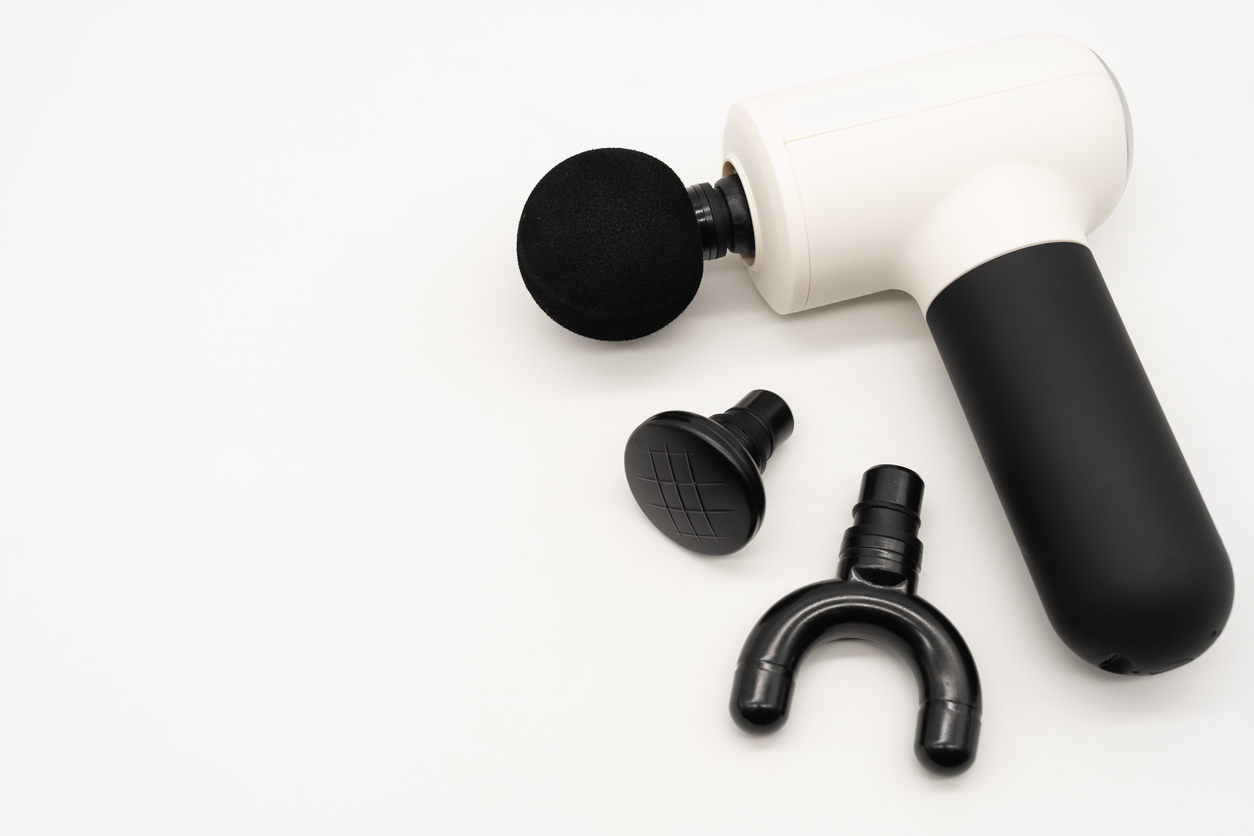Ensuring Compliance: The Importance of Vessel Inspection and Certification in Nigeria with Wigmore Trading
Ensuring Compliance: The Importance of Vessel Inspection and Certification in Nigeria with Wigmore Trading
Attention all maritime industry professionals in Nigeria! Are you aware of the crucial role that vessel inspection and certification play in ensuring compliance with regulations and standards? In this blog post, we will delve into the importance of these processes and how Wigmore Trading can help your vessels meet all necessary requirements. Stay tuned to learn more about how to keep your operations running smoothly and safely.
Introduction to Vessel Inspection and Certification in Nigeria
Introduction to Vessel Inspection and Certification in Nigeria
Vessels, whether they are used for commercial shipping or personal recreational activities, play a crucial role in the Nigerian economy. With over 8,000 kilometers of coastline and numerous ports, Nigeria relies heavily on its maritime industry for trade and transportation. However, with such high levels of activity, it is important to ensure that vessels operating in Nigerian waters are safe and compliant with international standards.
This is where vessel inspection and certification come into play. Vessel inspection involves a thorough examination of a ship’s structure, machinery, equipment, and safety systems to ensure they meet regulatory requirements. On the other hand, vessel certification is the process of issuing official documents that confirm a vessel’s compliance with safety and environmental standards.
In Nigeria, all vessels are required to undergo regular inspections by designated government agencies such as the Nigerian Maritime Administration and Safety Agency (NIMASA) and the National Inland Waterways Authority (NIWA). These agencies work together to enforce global maritime regulations set by organizations such as the International Maritime Organization (IMO).
The main objective of vessel inspection and certification in Nigeria is to promote safety at sea. This not only protects the lives of crew members but also prevents accidents that could lead to environmental disasters. It also ensures fair competition among vessel operators by holding them all accountable for maintaining proper safety standards.
Additionally, having valid certifications for their vessels allows owners to operate within Nigerian waters without any legal complications or penalties. Non-compliance can result in hefty fines or even detention of the vessel until necessary repairs or improvements are made.
Furthermore, being certified can also open up opportunities for vessels to participate in international trade routes as many countries require proof of compliance before allowing foreign ships into their ports.
It is crucial for all parties involved in the maritime industry – from shipowners to port authorities -to understand the importance of adhering to vessel inspection and certification requirements. Neglecting these processes not only puts lives at risk but also has serious economic and legal consequences.
Vessel inspection and certification play a vital role in ensuring safety, environmental protection, and legal compliance in the Nigerian maritime industry. By working together with government agencies and following international regulations, we can maintain a safe and thriving maritime sector that benefits all stakeholders.
The Role of Wigmore Trading in Ensuring Compliance
The Role of Wigmore Trading in Ensuring Compliance:
Wigmore Trading is a leading provider of vessel inspection and certification services in Nigeria. With over 10 years of experience in the maritime industry, Wigmore Trading has been playing a crucial role in ensuring compliance with national and international regulations for vessels operating in Nigerian waters.
One of the key responsibilities of Wigmore Trading is to conduct thorough inspections of vessels to ensure that they meet all safety and environmental standards set by regulatory bodies such as the Nigerian Maritime Administration and Safety Agency (NIMASA) and the International Maritime Organization (IMO).
To achieve this, Wigmore Trading employs a team of highly trained and certified inspectors who have extensive knowledge and expertise in conducting inspections according to established guidelines. These inspections cover all aspects of vessel operations, including structural integrity, equipment maintenance, crew training, emergency response procedures, and compliance with pollution prevention measures.
In addition to vessel inspections, Wigmore Trading also offers certification services to help vessels obtain necessary documents such as International Ship Security Certificates (ISSC), International Oil Pollution Prevention (IOPP) Certificates, International Air Pollution Prevention (IAPP) Certificates, and Safety Management Certificates. These certifications are essential for ensuring that vessels are compliant with international regulations when operating in Nigerian waters.
Furthermore, Wigmore Trading works closely with government agencies to ensure that vessels entering or leaving Nigerian ports have valid certificates and comply with all relevant laws. The company also assists shipping companies in obtaining necessary permits for their vessels from NIMASA.
Wigmore Trading’s commitment to ensuring compliance extends beyond just conducting inspections and issuing certifications. The company also provides training programs for vessel owners and operators on best practices for maintaining compliance with maritime regulations. This includes educating them on new regulations or updates that may affect their operations.
The role of Wigmore Trading cannot be overstated when it comes to ensuring compliance in the maritime industry in Nigeria. Their comprehensive and efficient inspection and certification services, as well as their dedication to providing ongoing support and training, make them an essential partner for vessel owners and operators in maintaining compliance with national and international regulations.
Importance of Vessel Inspection for Safety and Efficiency
Vessel inspection is a crucial aspect of the maritime industry, as it ensures the safety and efficiency of ships operating in Nigerian waters. It involves thorough checks and assessments to ensure that vessels are compliant with international regulations, thereby reducing the risk of accidents and promoting smooth operations.
Safety is the primary concern when it comes to vessel inspection. Ships that have undergone proper inspections and obtained certifications are deemed fit for sailing, which gives peace of mind to both crew members and passengers. The rigorous inspection process covers various safety aspects such as structural integrity, navigation equipment, life-saving appliances, fire-fighting systems, and emergency procedures. These inspections help identify any potential hazards or deficiencies that could jeopardize the safety of those on board.
Moreover, vessel inspections also play a critical role in protecting the marine environment from pollution. Ships are required to comply with strict environmental standards set by organizations like the International Maritime Organization (IMO). Regular inspections ensure that vessels meet these standards by checking their compliance with regulations related to waste management, emissions levels, ballast water management, and oil spill prevention measures.
In addition to safety and environmental concerns, vessel inspection also contributes significantly to improving efficiency in shipping operations. Inspections help identify any mechanical issues or malfunctions in a ship’s machinery or equipment that may hinder its performance. By detecting problems early on, necessary repairs can be made before they escalate into more significant issues that could cause delays or disruptions in shipping schedules.
Furthermore, certification obtained through vessel inspections adds credibility to ships’ operational capabilities. This plays an essential role in building trust between ship owners/operators and stakeholders such as clients, insurers, port authorities, and regulatory bodies. A certified vessel is seen as reliable for transporting goods safely and efficiently; hence it attracts more business opportunities.
In Nigeria specifically, where there has been an increase in maritime activities due to economic growth and development projects such as deep-sea ports construction projects like Lekki Port Complex (LPC), vessel inspection and certification are of utmost importance. The country’s maritime sector is still growing, and ensuring compliance with international standards will help establish a positive reputation in the global shipping industry.
Vessel inspection is not just a regulatory requirement; it plays a crucial role in promoting safety, protecting the environment, and improving efficiency in the maritime industry. It is essential for ship owners/operators to prioritize regular inspections and obtain necessary certifications to ensure safe and successful operations in Nigerian waters.
Types of Inspections and Certifications Offered by Wigmore Trading
At Wigmore Trading, we understand the significance of vessel inspection and certification in ensuring safety, compliance, and efficiency in maritime operations. That’s why we offer a wide range of inspections and certifications to meet the diverse needs of our clients. In this section, we will discuss the different types of inspections and certifications offered by Wigmore Trading.
1. Hull Inspection:
The hull of a vessel is its main structural component that provides stability and buoyancy. Our team of experienced marine engineers conducts thorough visual inspections to assess the overall condition of the hull, including its integrity, strength, coatings, corrosion levels, and any damages or defects. This inspection is crucial in determining whether a vessel meets international standards for seaworthiness.
2. Machinery Inspection:
The machinery on board a vessel is responsible for propelling it forward and powering various functions such as navigation, communication, lighting, and refrigeration. Our specialized inspectors conduct detailed assessments to ensure that all machinery components are functioning correctly and efficiently while complying with relevant regulations.
3. Safety Equipment Inspection:
Safety equipment such as life rafts, fire extinguishers, first aid kits are essential on every vessel to protect crew members from potential hazards at sea. Our inspectors thoroughly check these equipments’ functionality according to international maritime safety standards such as SOLAS (Safety Of Life At Sea).
4. Cargo Loading & Stability Inspection:
Cargo loading plays a vital role in maintaining the stability and safe operation of a vessel while at sea. Our experts use advanced technology to measure stability parameters such as draft marks, trim angle indicators accurately, among others during cargo loading operations.
5. International Safety Management (ISM) Certification:
ISM certification ensures that vessels comply with international safety management regulations set by the International Maritime Organization (IMO). At Wigmore Trading we provide ISM certification services for ships registered under Nigeria’s flag or other international flags.
6.Marine Pollution Prevention Certificate (MARPOL):
The MARPOL convention aims to prevent marine pollution from ships by setting out guidelines and regulations for the safe disposal of garbage, sewage, oil, and other harmful substances. Our inspectors conduct thorough assessments to ensure vessels comply with MARPOL requirements before issuing the certification.
7. International Ship Security Certificate (ISSC):
The ISSC is a mandatory certificate for all vessels that engage in international voyages. It ensures that vessels have adequate security measures in place to protect against piracy, terrorism, or any unlawful activities while at sea.
Wigmore Trading offers a comprehensive range of inspections and certifications necessary to ensure vessel compliance with national and international maritime regulations. We are committed to providing our clients with top-quality services that enhance their safety and operational efficiency at sea.
Ultrasonic Testing: A Crucial Step in the Inspection Process
Ultrasonic testing is a crucial step in the inspection process for vessels and plays a critical role in ensuring their compliance with safety regulations. It is a non-destructive testing method that uses high-frequency sound waves to detect internal defects or flaws in materials. This type of testing has become an essential tool in the inspection of vessels, as it provides accurate and reliable results without causing any damage to the vessel.
One of the primary reasons why ultrasonic testing is considered a crucial step in the inspection process is its ability to detect hidden flaws or defects that cannot be seen by visual inspection alone. These flaws can include cracks, corrosion, and other defects that may compromise the structural integrity of the vessel.
The process of ultrasonic testing involves sending high-frequency sound waves into the material being tested and measuring the time taken for these waves to bounce back from internal interfaces. Any changes or disruptions in this returning sound wave signal can indicate potential flaws or defects within the material.
In addition to detecting internal defects, ultrasonic testing also provides information about their size, shape, and location within the material. This data allows inspectors to accurately assess the severity of any detected issues and determine whether they require immediate attention or can be monitored over time.
Furthermore, ultrasonic testing can be performed on various materials such as metals, plastics, composites, and even concrete. This means that it can be used across different types of vessels, making it a versatile tool for inspections.
Apart from its accuracy and versatility, another advantage of ultrasonic testing is its speed compared to other methods such as radiographic testing. The equipment used for this type of test is portable and easy to set up, allowing for quick assessments during routine inspections or when responding to urgent maintenance needs.
Ultrasonic testing is a crucial step in ensuring compliance with safety regulations during vessel inspections. Its ability to detect hidden flaws without damaging the vessel makes it an invaluable tool for maintaining safe operations at sea. As such, it is essential for vessel owners and operators in Nigeria to prioritize this testing method as part of their regular inspection and certification processes.
Benefits of Regular Inspections and Certifications
Regular inspections and certifications are crucial in ensuring the safety and compliance of vessels in Nigeria. With the country’s large coastal area and its dependence on maritime trade, it is essential to have proper measures in place to maintain the quality and standards of vessels operating within its waters.
One of the primary benefits of regular inspections is that it helps detect any potential issues or deficiencies before they become serious problems. During an inspection, trained professionals thoroughly examine various aspects of a vessel such as its structure, machinery, equipment, and safety protocols. This allows for early detection of any defects or malfunctions that could compromise the vessel’s seaworthiness or pose a danger to its crew members.
In addition to identifying existing issues, regular inspections also help prevent future problems by ensuring that vessels are well-maintained and comply with all regulatory requirements. By adhering to strict inspection standards, vessel owners can ensure that their ships are always in top condition, reducing the risk of breakdowns or accidents at sea.
Moreover, regular inspections promote accountability among vessel owners and operators. With mandatory certification requirements in place, these stakeholders are held responsible for maintaining their vessels’ compliance with safety regulations. This not only ensures the safety of their crew but also protects other ships sharing Nigerian waters.
Another significant benefit of regular inspections is that they contribute to environmental protection efforts. Vessels that fail to meet emission standards can be flagged during an inspection, leading to necessary repairs or upgrades to reduce their carbon footprint. This is especially important considering Nigeria’s rich marine biodiversity and its vulnerability to pollution from shipping activities.
Furthermore, having up-to-date certifications for a vessel provides assurance to potential clients and partners regarding its quality and reliability. Companies looking to transport goods via sea routes need assurance that their cargo will reach its destination safely and on time without causing any harm along the way. Regular inspections ensure that certified vessels meet all necessary standards for safe transportation.
Regular inspections play a crucial role in maintaining Nigeria’s reputation as a responsible and compliant maritime nation. By prioritizing vessel inspections and certifications, the country showcases its commitment to upholding international maritime regulations and ensuring the safety of vessels operating within its waters.
Regular inspections and certifications bring numerous benefits to vessel owners, operators, crew members, the environment, and Nigeria as a whole. They promote safety, accountability, environmental protection, and maintain the country’s credibility in the global maritime industry. Therefore, it is crucial for all stakeholders to prioritize compliance with inspection and certification requirements to ensure safe and sustainable shipping practices in Nigerian waters.
Case Studies on Vessel Failures Due to Lack of Compliance
Vessel failures are occurrences that can have devastating consequences not just for the vessel and its crew, but also for the entire maritime industry. In recent years, there have been numerous cases of vessels failing due to lack of compliance with regulations and standards set by international maritime bodies. These failures highlight the critical importance of vessel inspection and certification in ensuring the safety and integrity of vessels.
One such case is that of the MV Derbyshire, a bulk carrier ship that sank in 1980 off the coast of Japan during Typhoon Orchid. All 42 crew members on board lost their lives in what remains as one of the worst maritime disasters in British history. The official investigation into this tragic incident revealed multiple deficiencies in vessel maintenance and inadequate compliance with safety regulations, leading to structural failure and loss of stability.
Similarly, another case involving a Nigerian-owned oil tanker highlights the dangers posed by lack of compliance with standards. In 2012, MT Sea Voyager suffered an explosion while offloading crude oil at a terminal in Lagos, killing three crew members and causing significant environmental damage. Investigations found that the ship had been operating without valid certification from relevant authorities despite having numerous safety deficiencies identified during previous inspections.
These incidents demonstrate how non-compliance with vessel inspection and certification requirements can have severe consequences for both human life and marine ecosystems. Failure to adhere to regulations not only puts crews at risk but also jeopardizes trade routes, impacts global supply chains, and causes economic losses.
Moreover, non-compliant vessels also face legal repercussions or penalties from authorities responsible for enforcing these regulations. In Nigeria specifically, non-compliant ships may be detained or denied entry into ports until they obtain proper documentation or undergo necessary repairs to meet safety standards.
Therefore, it is crucial for vessel owners/operators to prioritize regular inspections and obtaining necessary certifications to ensure their ships are compliant with international standards. This responsibility falls on all parties involved in vessel operations – including owners/operators, flag states, classification societies, and port authorities – to work together towards achieving full compliance.
The importance of vessel inspection and certification cannot be overstated. It is a crucial aspect of ensuring the safety and sustainability of the maritime industry. Compliance with regulations not only protects human life but also upholds the integrity and reputation of the shipping industry as a whole.
Conclusion: Why Choosing a Reliable Partner for Vessel Inspection
Conclusion: Why Choosing a Reliable Partner for Vessel Inspection
Choosing a reliable partner for vessel inspection is crucial to ensure compliance and safety in the maritime industry. As discussed in this article, vessels are subject to various inspections and certifications to ensure they meet national and international standards. Non-compliance can result in serious consequences, including fines, detention of vessels, and even loss of life.
Therefore, it is essential to choose a trusted and experienced company like Wigmore Trading for your vessel inspection needs. With over 20 years of experience in the Nigerian maritime market, Wigmore Trading has established itself as a leading provider of marine services. They have a team of highly qualified surveyors who are knowledgeable about local regulations and international requirements.
One of the main benefits of choosing Wigmore Trading as your vessel inspection partner is their commitment to quality and customer satisfaction. They use state-of-the-art equipment and follow strict protocols to ensure accurate results and timely delivery of reports. This attention to detail helps clients identify potential issues before they become major problems, saving them time and money in the long run.
Moreover, Wigmore Trading has a good working relationship with relevant authorities such as the Nigerian Maritime Administration and Safety Agency (NIMASA) and the International Maritime Organization (IMO). This partnership allows them to stay updated on changes in regulations or requirements that may affect your vessel’s compliance status.
Another advantage of partnering with Wigmore Trading is their comprehensive range of services. They offer pre-purchase inspections, flag state inspections, cargo surveys, hull damage assessment, among others. This means that you can rely on them for all your vessel inspection needs without having to engage multiple service providers.
Furthermore, choosing Wigmore Trading will give you peace of mind knowing that your vessels are compliant with national and international standards. By adhering to these standards diligently , you protect not only your business interests but also contribute towards ensuring safety at sea.
In conclusion , vessel inspection and certification are essential aspects of the maritime industry that should not be taken lightly. By choosing a reliable partner like Wigmore Trading, you can ensure compliance, safety, and peace of mind for your vessels. Trust in their expertise and experience to keep your vessels sailing smoothly and safely on Nigerian waters.








Comments are closed.